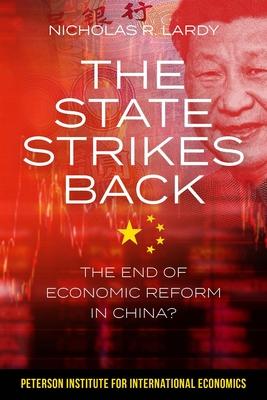China's extraordinarily rapid economic growth since 1978, driven by market-oriented reforms, has set world records and continued unabated, despite predictions of an inevitable slowdown. In The State Strikes Back: The End of Economic Reform in China?, the renowned China scholar Nicholas R. Lardy argues that China's future growth prospects could be equally bright but are shadowed by the specter of resurgent state dominance, which has begun to diminish the vital role of the market and private firms in China's economy.
Lardy's book is a timely sequel to his path-breaking Markets Over Mao: The Rise of Private Business in China (Peterson Institute for International Economics, 2014). This book mobilizes new data to trace how President Xi Jinping has consistently championed state-owned or controlled enterprises, encouraging local political leaders and financial institutions to prop up ailing, underperforming companies that are a drag on China's potential. As with his previous book, Lardy's perspective departs from conventional wisdom, especially in its contention that China could achieve a high growth rate for the next two decades--if it reverses course and returns to the path of market-oriented reforms.
Book
The State Strikes Back: The End of Economic Reform in China?
(Write a Review)
Paperback
$23.95
China's extraordinarily rapid economic growth since 1978, driven by market-oriented reforms, has set world records and continued unabated, despite predictions of an inevitable slowdown. In The State Strikes Back: The End of Economic Reform in China?, the renowned China scholar Nicholas R. Lardy argues that China's future growth prospects could be equally bright but are shadowed by the specter of resurgent state dominance, which has begun to diminish the vital role of the market and private firms in China's economy.
Lardy's book is a timely sequel to his path-breaking Markets Over Mao: The Rise of Private Business in China (Peterson Institute for International Economics, 2014). This book mobilizes new data to trace how President Xi Jinping has consistently championed state-owned or controlled enterprises, encouraging local political leaders and financial institutions to prop up ailing, underperforming companies that are a drag on China's potential. As with his previous book, Lardy's perspective departs from conventional wisdom, especially in its contention that China could achieve a high growth rate for the next two decades--if it reverses course and returns to the path of market-oriented reforms.Paperback
$23.95